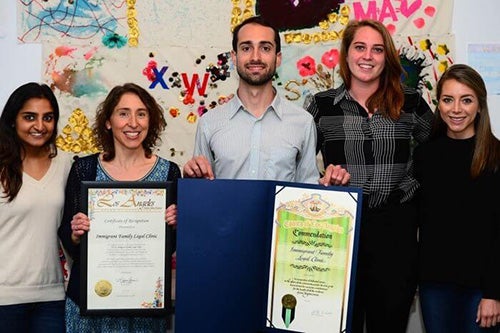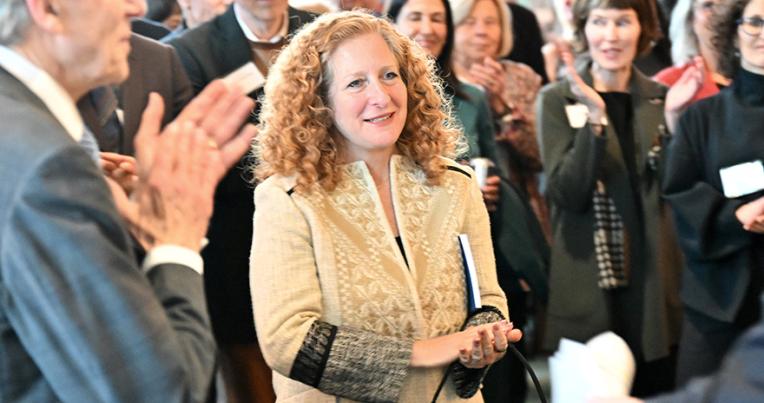Securing Safety: Clinic Helps Immigrant Family Win Asylum
UCLA Law Magazine | Fall 2020 | Volume 43

Four members of an immigrant family who fled persecution in Mexico were granted legal asylum in the United States in 2020, thanks to the dedicated work of students and faculty at UCLA School of Law’s Immigrant Family Legal Clinic.
The case is among the initial successes for the clinic, which opened in 2019 at the Robert F. Kennedy Community Schools in Koreatown. A partnership among UCLA Law, the UCLA School of Education and Information Studies and the Los Angeles Unified School District, it provides no-cost legal support to students and their families. It is the nation’s first and only immigration law clinic on a K–12 public school campus and is supported by the new Center for Immigration Law and Policy at UCLA Law.
The clinic’s clients were an indigenous family who had undergone years of severe persecution in Oaxaca, starting when the mother was a teenager and continuing until mistreatment of her young daughters ultimately caused them to flee to the U.S.
“Among the many forms of violence used against the family, one of the culminating incidents involved successful efforts by their persecutors to prevent the children from attending school,” says Nina Rabin, who directs the clinic and led the UCLA Law team that worked on the case. “It is especially poignant that they found their way to the RFK Community Schools, where the girls could pursue their education in a school community committed to social justice.”
There, the family connected with the clinic at an open-house event, and Rabin and law students Mary Lipscomb ’20 and Asheeka Desai ’19 took on their case. The team conducted hours of interviews, with interpretation by UCLA undergraduate Dulce Jimenez, and consulted with experts on violence in Mexico and psychiatrists at the UCLA-based Los Angeles Human Rights Initiative. After assembling an evidence packet, including photographs and police reports, that grew to more than 500 pages, they drafted an extensive legal brief.
While the team navigated a series of unpredictable procedural hurdles, and over the many months that it took for the decision to arrive, the clinic’s social work intern, Araceli Gonzalez, a social welfare master’s student at the UCLA Luskin School of Public Affairs, kept in close contact with the family to ensure that they had access to essential services and support. This spring, U.S. Citizenship and Immigration Services granted the family asylum, putting them on a path to a green card.
“I felt so thrilled and relieved for them because I know how difficult it was for them to tell their story,” says Jimenez, who graduated in June and was inspired to apply to law school because of her work on the case. “I was glad to know that the stressful wait was finally over and the family could start to focus on their new life in the United States.”
In its first year of operation, the Immigrant Family Legal Clinic has provided full legal representation to nearly three dozen immigrant students and their family members. While many cases remain pending because of backlogs in the immigration system, the clinic has obtained seven visas for immigrant juveniles who have experienced abuse, abandonment or neglect; renewed DACA for a young man with a minor arrest that jeopardized his immigration status; and secured work authorization for four clients while their asylum applications remain pending.
In addition, the clinic has provided more than 60 consultations to RFK community members on a wide range of legal topics and has engaged in extensive community outreach and education efforts, including more than 30 presentations for RFK students, family members, teachers and administrators.
“The rewarding work with my inspirational clients made me decide that I want to pursue asylum law as a career path,” says Lipscomb, who values the education in holistic legal representation that she gained while working on the case. “I came to law school to gain a skill that would enable me to advance racial and gender justice. This clinic was a perfect opportunity to provide direct services that contribute to that work.”
